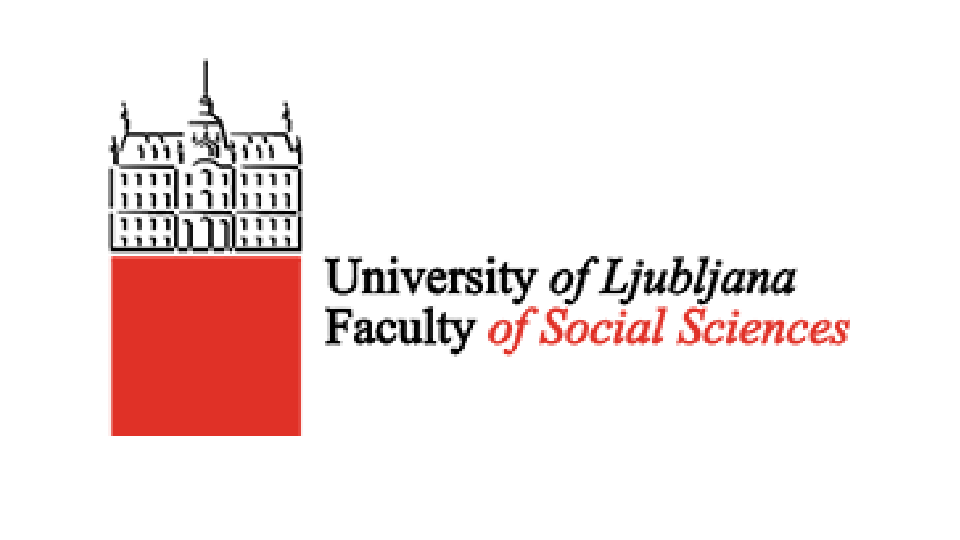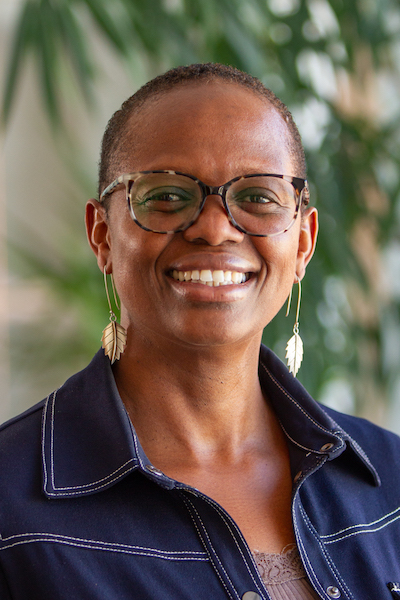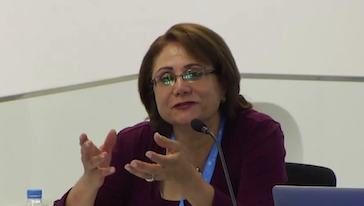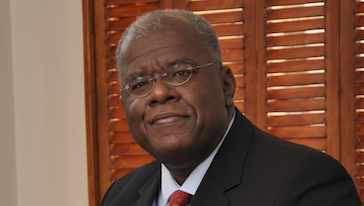Professor Paul Collier stressed the historic ties between Europe and Africa, which, according to him, make the two continents the natural partners in economic as well as social development. With Africa becoming the fastest growing continent, especially due to the vast amount of its natural wealth, Europe should proactively cooperate in its development. Africa’s prosperity is Europe’s opportunity, said Collier. Many of the European countries are reviving their ties with different African countries. Since Africa on the other hand is still very poor and faces many societal problems, Europe can through its actions in development cooperation and its policies, help Africa meet these challenges. This does not necessarily start and ends with money: there are several other ways EU can help Africa, primarily through helping the countries to improve their governance capability.
The tripod that Africa needs to build combines the correct economic rules and reform, improvement of its institutions and the development of effective implementation capability. One of the main difficulties faced by African governments is to have a good knowledge of their natural resources: a good public geological survey. This will enable the governments to have credibility and knowledge in the negotiating processes with extraction corporations. Today it still happens that the estimate on the resources is given by the corporations, often to the disadvantage of the country.
The second step needs to be more decisive taxing natural resources’ exploitation: this is the wealth, where the resources should come for investing in social infrastructure. There are several cases where the government offers tax holidays to the extraction companies. This means that the countries don’t benefit from their resources. In addition, the extraction often leaves depleted environment, leads to fraud and corruption. The extraction companies should be requested to pay proper compensation for the damage they cause to the local population. Of course Africa is not USA – Collier mentioned the case of oil spill in Mexican gulf and the attitude of BP there. This kind of proactive response to the damage would never be experienced in any other country. The ineffective legal environment in African countries leads to extraction companies not even following already poor environmental legislation. What the governments need to assure is transparent distribution of income derived from natural resources. Also, the benefits of the natural resources need to be preserved for the future generations: this is often disregarded by the current governments.
If African countries can benefit from significant earnings from the extraction of their resources, where should they invest the earnings? Collier cited Norway as an example of investing oil money in different projects even outside Norway (China, Brazil) to assure earnings for the future. African countries should build the capacity to invest correctly the money from natural resources. Even prior to investment, one needs to develop the capacity to invest. To do so, you need rules, decision-making system and good governance. According to Collier, Europe comes in twice: it can help African countries with fighting the corruption, and it can open its doors to African products. The corruption needs to be stopped with the extraction companies themselves- not in Africa, but at their home countries in EU and USA. The resolution of the EU Parliament on illegality of paying the African governments is a good move in the right direction, the only problem is that it has not authority. USA Finance Act is much more direct: it requires from all the companies listed on the stock exchange to reveal any illegal payments. This has a much more direct effect. Activities in this area need to be further supported by EU.
African society needs help in increasing their knowledge on resource management. The ideas and principles of Natural Resource Charter, which is a global initiative, need to be more widely promoted. The NRC was adopted by NEPAD, but NEPAD needs money to build the capacity for the implementation of the Charter. Here EU aid could help- not many resources are required, yet the impact could be immense. With modest steps the EU could help to make sure that Africa fully benefits from its natural resources.
The second African opportunity is the industrialisation of its economy- so far it hasn’t done it. Here Collier draws attention to the global manufacturing phenomena by giving a “lecture” on the economics of buttons> two thirds of world’s buttons are made in China in one single town, No comparative advantage can explain this. The synergy effects, deriving from a cluster set-up, where the production chain is developed as well as the economies of scale, make it very difficult for a newcomer to break in the business. Only with gradual increase of wages in Asia, Africa may have a chance with labour intensive sectors. Where EU can help is by keeping open markets and relocate some of its labour intensive business to African countries. EU can help by giving a privileged access in our own markets over the goods coming in from Asia. We do it, but in a patchy way- we should also open the markets to the better of African countries.






